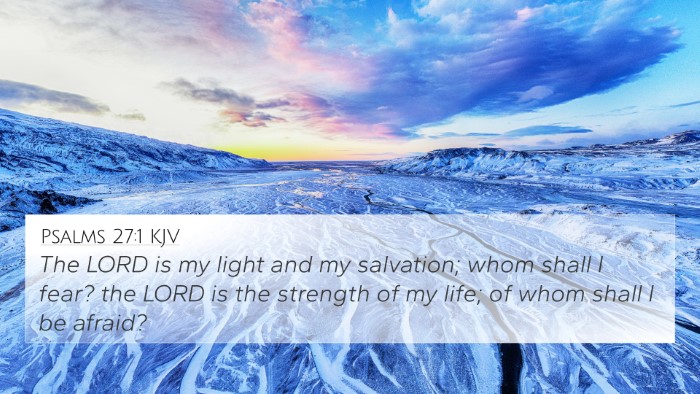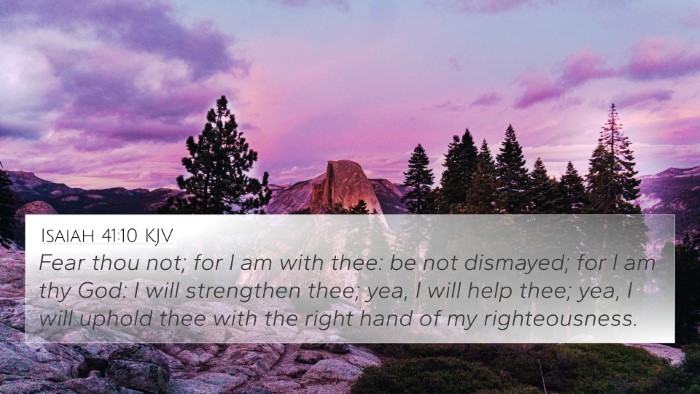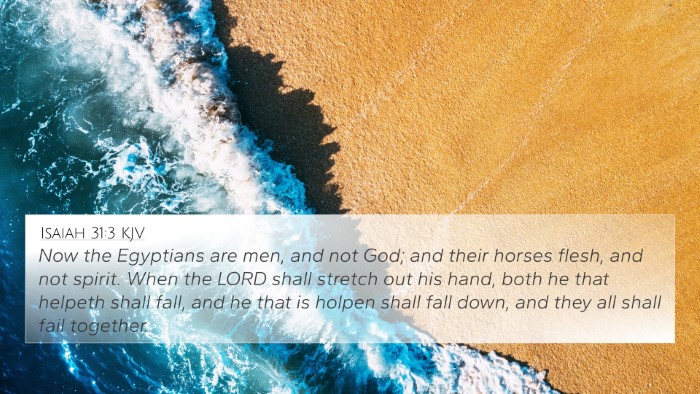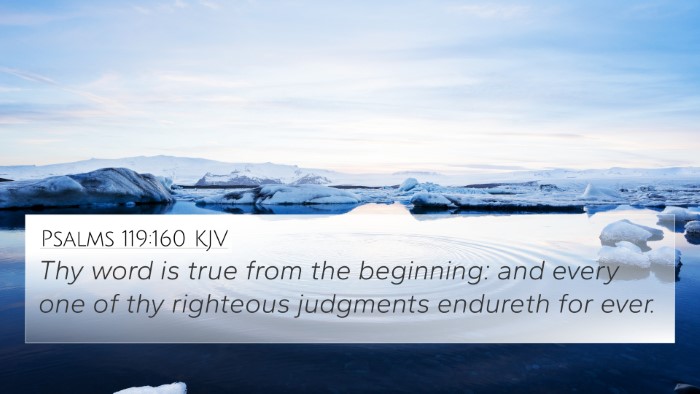Psalms 56:4: A Comprehensive Analysis
Psalms 56:4 states, "In God, whose word I praise, in God I trust; I will not be afraid. What can mere mortals do to me?"
This verse is a powerful declaration of faith and trust in God amidst the uncertainties and fears of life. To better understand this verse, we will explore insights drawn from notable public domain commentaries, namely those of Matthew Henry, Albert Barnes, and Adam Clarke.
Insights from Commentaries
-
Matthew Henry:
Henry emphasizes the importance of placing trust in God as a refuge in times of distress. He points out that the phrase “in God, whose word I praise” signifies a recognition of God’s promises and the believer's commitment to uphold them. This acknowledgment is crucial for overcoming fear, as it highlights the contrast between divine strength and human frailty.
-
Albert Barnes:
Barnes notes that this verse serves as a testament to the unwavering confidence that believers should have in God. He interprets “What can mere mortals do to me?” as a rhetorical question designed to reinforce a sense of invulnerability afforded by faith in God. He argues that the verse encapsulates the idea of divine protection against human threats.
-
Adam Clarke:
Clarke explores the themes of fear and divine reassurance. He illustrates how recognizing God's promises can diminish earthly fears. Clarke also highlights the significance of praise, insinuating that a heart filled with gratitude toward God fosters a spirit of bravery and resilience amidst trials.
Key Themes
- Divine Trust: Trust in God is central to the believer’s response to fear. This verse exemplifies how reliance on divine strength can alleviate human apprehension.
- The Power of Praise: Praising God’s word is a form of worship that reinforces faith and bolsters the believer's courage in dire situations.
- Human Limitations: The verse emphasizes the limitations of human capacity, inspiring believers to focus on God’s omnipotence rather than earthly fears.
Cross-References
This verse has connections to several other Biblical passages that elucidate similar themes of faith, fear, and divine protection:
- Isaiah 12:2: "Surely God is my salvation; I will trust and not be afraid. The Lord, the Lord himself, is my strength and my defense; he has become my salvation."
- Romans 8:31: "What then shall we say in response to these things? If God is for us, who can be against us?"
- 2 Timothy 1:7: "For God has not given us a spirit of fear, but of power, love, and a sound mind."
- Philippians 4:6-7: "Do not be anxious about anything, but in every situation, by prayer and petition, with thanksgiving, present your requests to God."
- Psalm 118:6: "The Lord is with me; I will not be afraid. What can mere mortals do to me?"
- Matthew 10:28: "Do not be afraid of those who kill the body but cannot kill the soul. Rather, be afraid of the One who can destroy both soul and body in hell."
- Hebrews 13:6: "So we say with confidence, 'The Lord is my helper; I will not be afraid. What can mere mortals do to me?'"
Applying Cross-Referencing
Cross-referencing enhances biblical understanding by linking related scriptures, allowing for a deeper comprehension of themes. Here are some considerations for how to use cross-references related to Psalm 56:4:
-
Tools for Bible Cross-Referencing: Utilize tools such as biblical concordances and cross-reference guides to identify related verses that strengthen the themes of trust and faith.
-
Identifying Inter-Biblical Dialogues: Study connections between verses to discover how themes transition from the Old Testament to the New Testament, exemplified in the relationship between Psalm 56:4 and Jesus’ teachings on fear.
-
Thematic Bible Verse Connections: Consider how other scriptures about divine protection shape the understanding of this verse, encouraging a broader study of biblical themes.
Conclusion
Psalms 56:4 is a profound declaration of faith that reassures believers in the omnipotence of God over human fears. By reflecting on this verse and its cross-references, individuals can cultivate an enduring trust in God that transcends life's uncertainties. The exploration of related scriptures allows for a deeper understanding of God's promises and serves as a guide for navigating challenges with courage and faith.

















